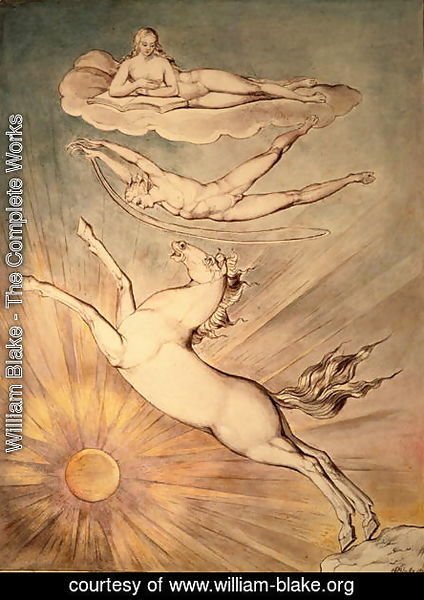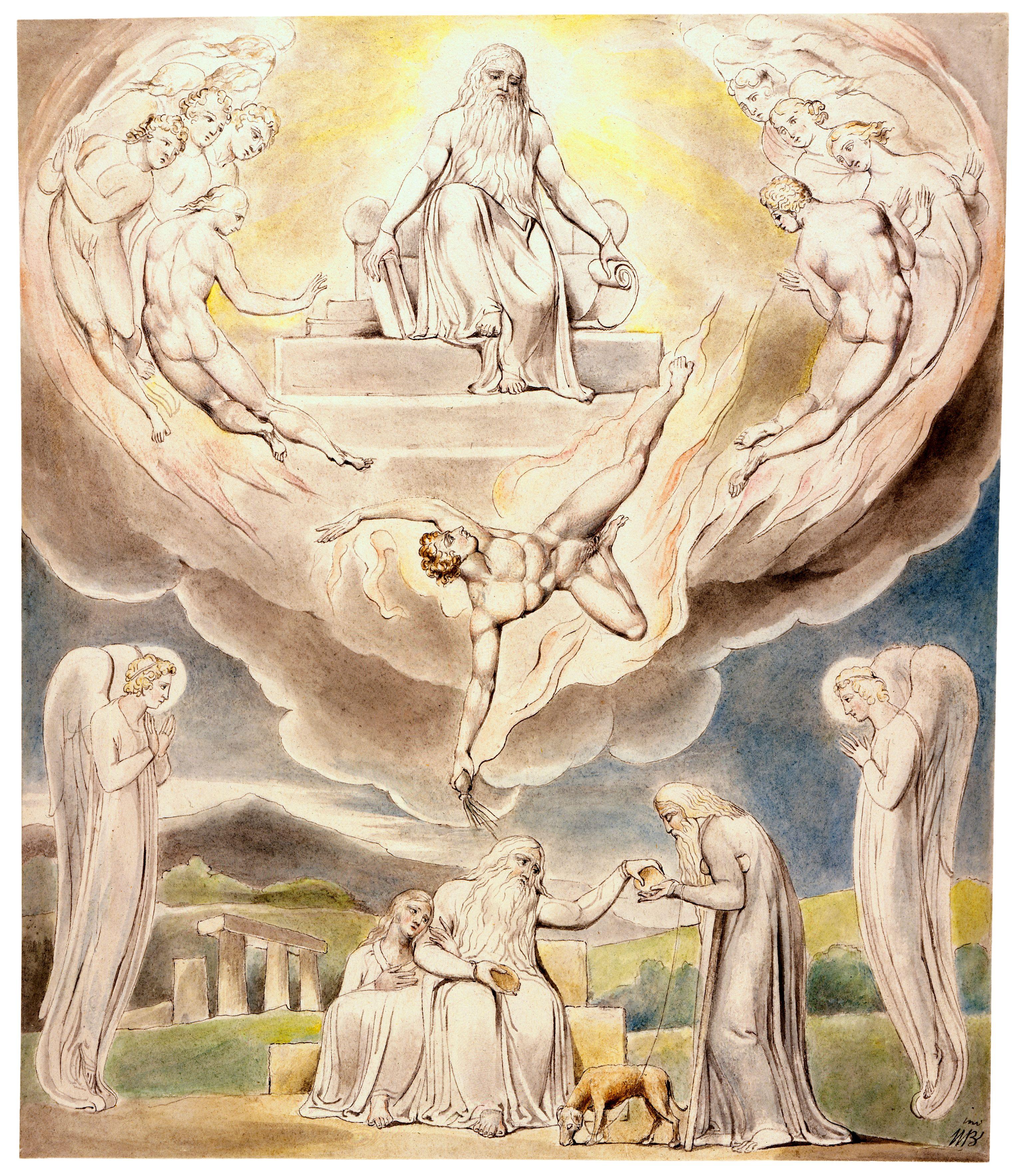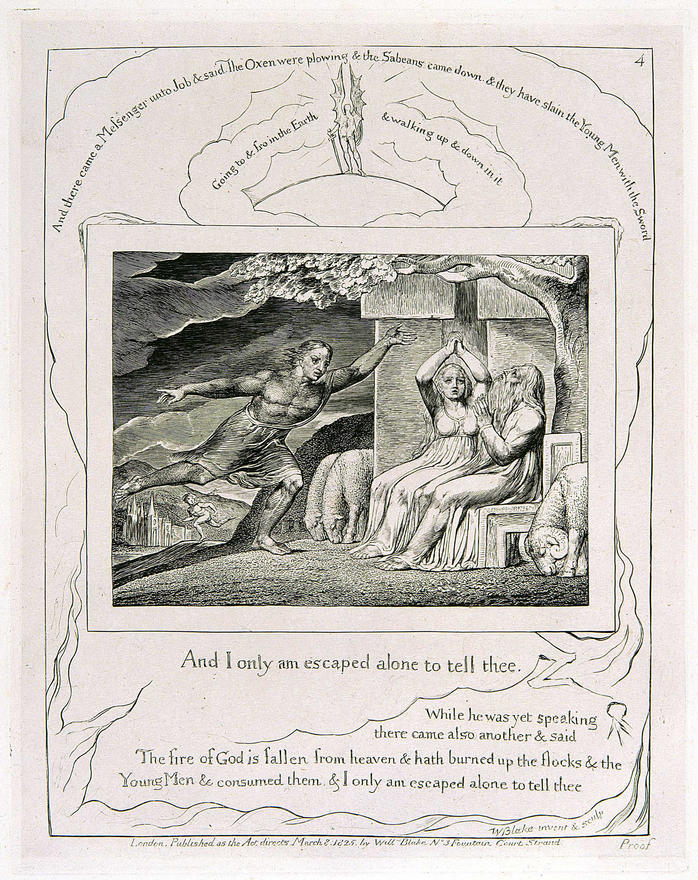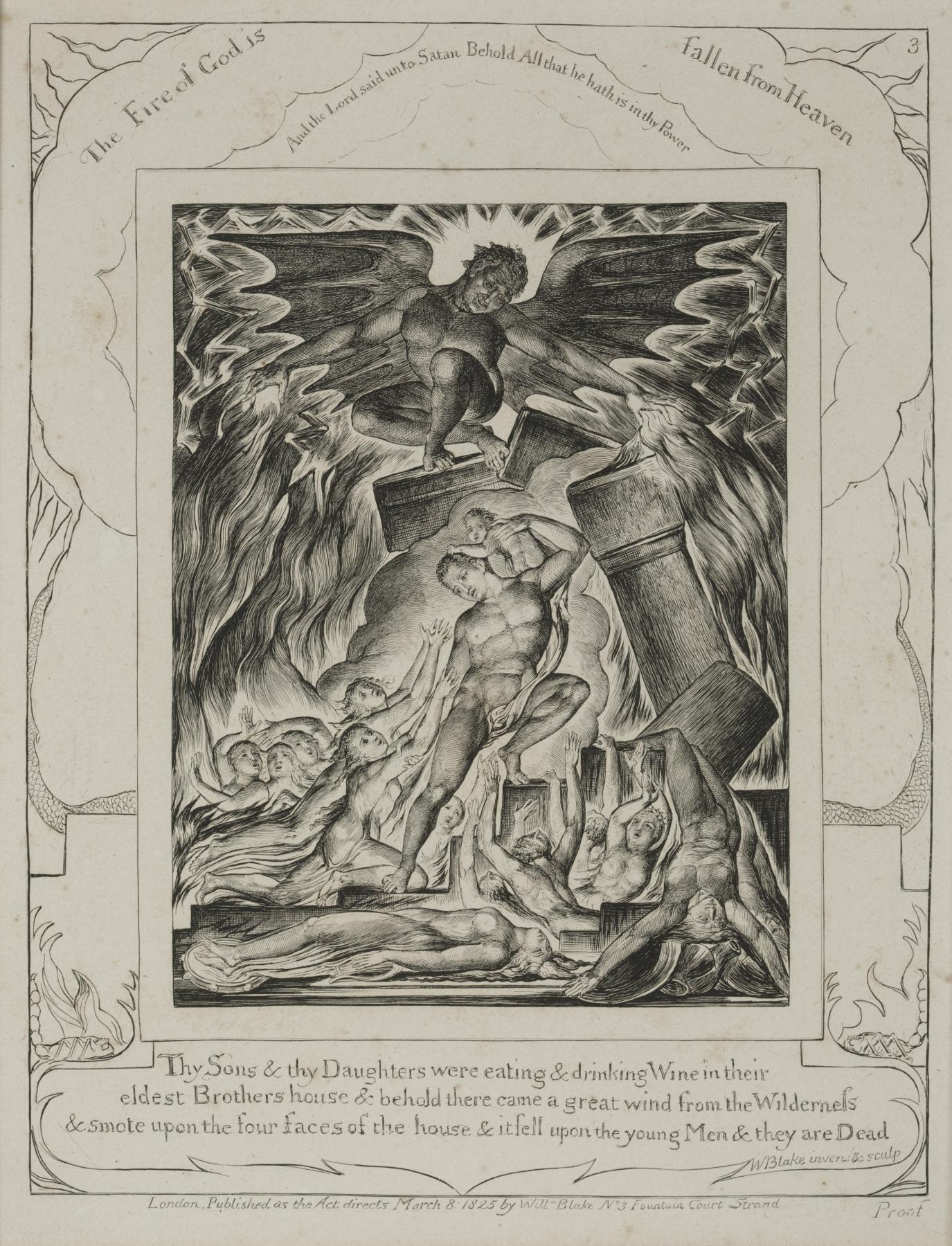This picture shows the arrival of the first of three messengers; Another one shows up in the background. They're coming from the cathedral area in the lower left corner of the picture; this suggests that the destruction envisioned here
concerns the established religious values. The fact that we're finding so many religious people who have left the church today suggests that the Job scene is being reenacted right now. In Job's day the three 'friends' who came to comfort Job certainly represented conventional religious values.
Job and his wife are sitting under a megalithic shelter, which also enacts the primitive nature of Job's faith. More than once Blake referred to conventional religion as
druidic.
Reading the text in the Bible- Job 1:
'
8 Then the LORD said to Satan, "Have you considered my servant Job? There is no one on earth like him; he is blameless and upright, a man who fears God and shuns evil."
9 "Does Job fear God for nothing?" Satan replied.
10 "Have you not put a hedge around him and his household and everything he has? You have blessed the work of his hands, so that his flocks and herds are spread throughout the land.
11 But stretch out your hand and strike everything he has, and he will surely curse you to your face."
12 The LORD said to Satan, "Very well, then, everything he has is in your hands, but on the man himself do not lay a finger."
Then Satan went out from the presence of the LORD.
13 One day when Job's sons and daughters were feasting and drinking wine at the oldest brother's house,
14 a messenger came to Job and said, "The oxen were plowing and the donkeys were grazing nearby,
15 and the Sabeans attacked and carried them off. They put the servants to the sword, and I am the only one who has escaped to tell you!"
16 While he was still speaking, another messenger came and said, "The fire of God fell from the sky and burned up the sheep and the servants, and I am the only one who has escaped to tell you!"
17 While he was still speaking, another messenger came and said, "The Chaldeans formed three raiding parties and swept down on your camels and carried them off. They put the servants to the sword, and I am the only one who has escaped to tell you!"
18 While he was still speaking, yet another messenger came and said, "Your sons and daughters were feasting and drinking wine at the oldest brother's house,
19 when suddenly a mighty wind swept in from the desert and struck the four corners of the house. It collapsed on them and they are dead, and I am the only one who has escaped to tell you!"
20 At this, Job got up and tore his robe and shaved his head. Then he fell to the ground in worship
21 and said:
"Naked I came from my mother's womb,
and naked I will depart. The LORD gave and the LORD has taken away; may the name of the LORD be praised."
22 In all this, Job did not sin by charging God with wrongdoing."














